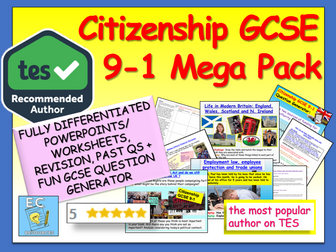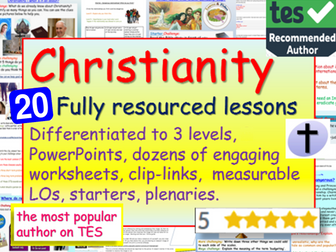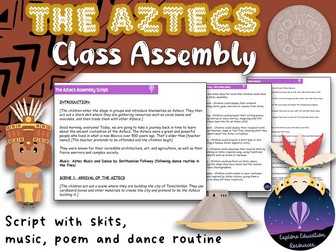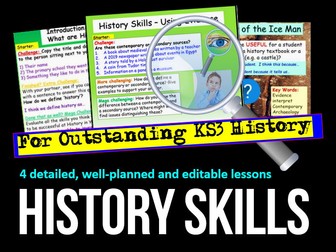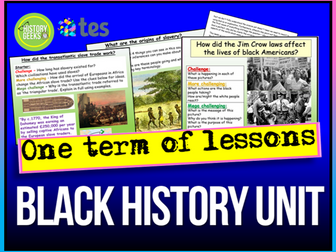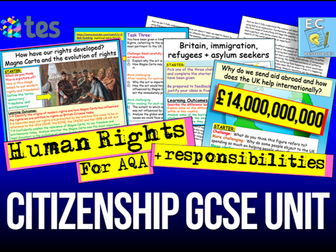Bundle

AQA Citizenship GCSE
24 hours+ (around 140 resources, all worksheets, powerpoints and everything totalled up) of Citizenship GCSE 1-9 revision and lesson content. This revision + lessons Mega Pack also contains 2 x exam question generators. Used for AQA but content covered by OCR and EDEXCEL too. Huge bundle of lessons, revision booklets to be given out in the lessons or as revision materials later, past question practices, differentiated 1-9 activities, campaigning packs and a fun GCSE question generator.
Suitable for GCSE Citizenship 9-1 easily adapable (all editable formats)
Different level tasks for MA,LA or Core
Designed to fit Ofsted criteria for’ Good’ or above.
Check out the EC Publishing website for full, affordable PSHE, Citizenship and RE Packages for all year groups including the new 2024 Complete PSHE Package. You can contact us at info@ecpublishing.co.uk
Many more inexpensive and free resources at my shop:
EC_Resources
Leave me a review and pick any other resource for free :)
